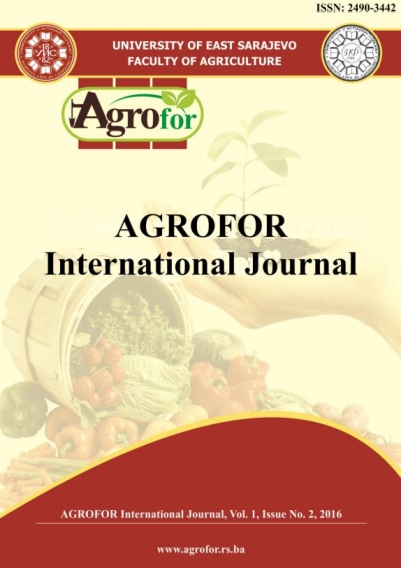IMPACT OF INULIN ON CALVES’ GROWTH AND POSSIBLE REDUCTION OF GREENHOUSE GAS EMISSION
DOI:
https://doi.org/10.7251/AGRENG1602088IAbstract
To reduce greenhouse gas emission (GGE) researchers propose to shorten the
period of breeding calves of dairy breeds (Mirzaei-Aghsaghali et al., 2015, Fao,
2010). However, producers try to prolong the time of rising animals in order to get
more valuable production. The aim of this research was to determine the impact of
different dosages of inulin concentrate (50%) produced in Latvia by using special
technologies on calves’ health, amount of obtained production and to evaluate
possible reduction of GGE. Research has been supported by the National research
programme AgroBioRes (2014-2017).Four week old clinically healthy Holstein
Friesian calves which were kept in barn in individual cages were included in this
research. Ten were in control group (CoG) and thirty were fed with additional flour
supplement (groups: Pre6 (n=10), Pre12 (n=10), Pre24 (n=10)) until the groups’
median weight was above 90kg. We found out that inulin supplement reduced the
cases of diarrhoea especially in Pre12 (P=95%) less than in CoG. Also, the overall
health condition in Pre12 was the most stable. The best rate of live weight showed
calves from Pre12 and Pre24, the desired weight was exceeded on 42nd test day
(median increase rate respectively 0.85 kg/day and 0.95 kg/day). Pre6 reached that
goal on day 56 (0.76 kg/day), CoG only on 70 (0.55 kg/day). Conclusion: the
optimal dose of that supplement for speeding up the growth rate is 12g which can
stabilize the health and reduce breeding time. Besides shortening breeding time
minimum to 3 weeks (i.e. 17%), GGE can be reduced too.

